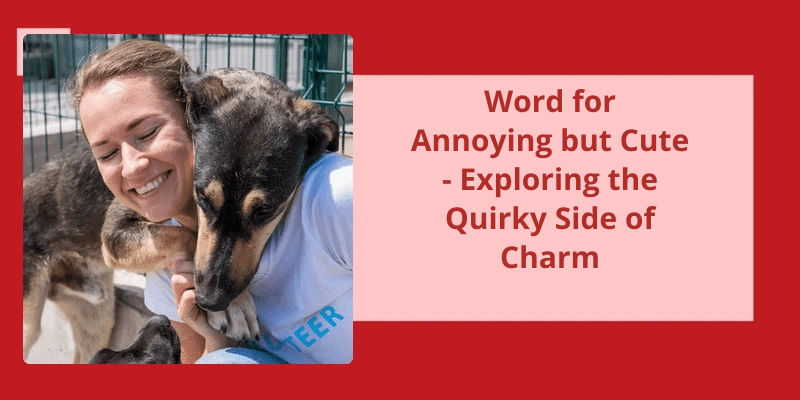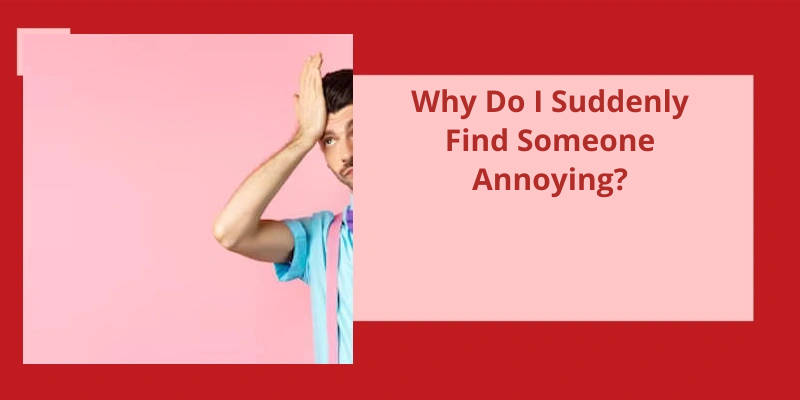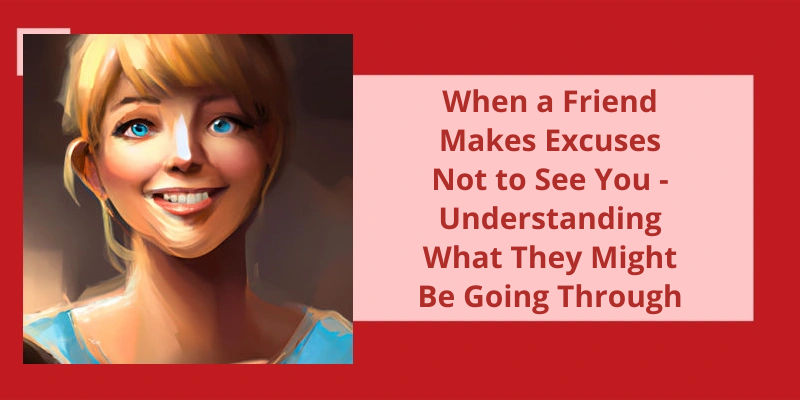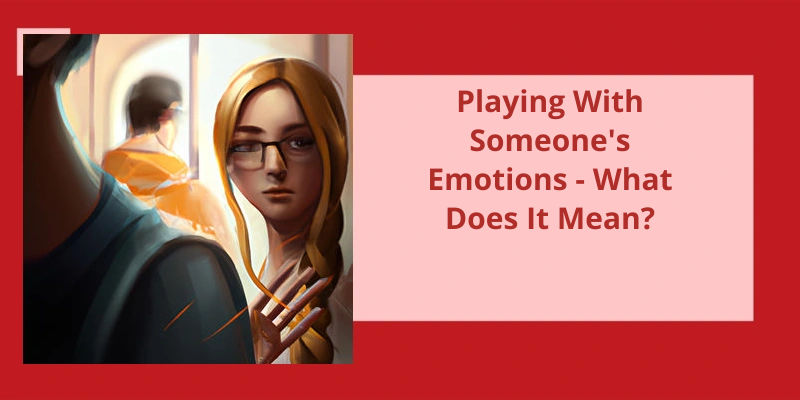The teenage years are a time of contradictions and confusion, where emotions run high and often clash in unusual ways. It's a time where contradiction is the norm, and one of the biggest examples of that’s the concept of an oxymoron. An oxymoron is defined as a figure of speech that combines seemingly contradictory terms, resulting in a phrase that’s both confusing and intriguing. Perhaps the biggest oxymoron in the world of teenagers is the idea of someone who’s simultaneously annoying and cute. This person might drive you crazy with their quirks and habits, but their charm and endearing nature keep you drawn to them like a magnet. They’re the most annoying but sweetest person in your life, a contradiction that confounds you yet leaves you with a sense of fascination. In this world of oxymorons and contradictions, the annoyingly cute teenager is a prime example of the chaos and unpredictability of life as a teen.
What’s a Fancy Word for Annoying?
Sometimes we encounter individuals who rub us the wrong way. We may be unable to put a finger on why their behavior or actions bother us, but we can’t deny that we find them annoying. This sort of annoyance has different names in the English language, though the word annoying is often the most commonly used. Other words that can be used interchangeably with annoying include bothersome, irritating, irksome, vexing, vexatious and galling. The choice of word depends on context, tone, and the degree of irritation one is experiencing.
Bothersome is a mild way of expressing annoyance and refers to anything that causes minor concerns, troubles, or discomfort. For instance, a noisy neighbor who occasionally disturbs your peace may be described as bothersome. Irritating is more intense than bothersome and suggests that something persistently gets on ones nerves. For example, a repetitive sound or a nagging person can be described as irritating. The word irksome is synonymous with irritating but implies an added layer of frustration and impatience.
Vexing is an adjective that describes something or someone that makes us frustrated or upset. It suggests that the source of irritation is difficult to understand or deal with. For example, a perplexing math problem may be described as vexing. Vexatious is another way to describe something or someone irritating, with an additional sense of being harassing or troublesome. A creditor who persistently harasses a debtor with calls and legal notices is an example of a vexatious person.
The word galling describes something that’s especially frustrating, offensive, or humiliating. It suggests a degree of irritation that can injure ones pride or self-esteem. For instance, a teacher giving an undeservedly poor grade can be said to be galling to the affected student. These words are all useful ways to describe things and people that annoy us, and using them interchangeably can add some variety and texture to our language. However, it’s also important to note that the context and tone of communication can change the meaning and level of annoyance associated with these words.
How Different Cultures and Languages Express the Concept of Annoyance
Different cultures and languages have their own unique ways of expressing annoyance. This can manifest through different tone of voice, body language, and other nonverbal cues. Additionally, certain words or phrases may have a specific connotation related to annoyance in different cultures and languages.
Now that we’ve tackled the question of how to say annoying in a cute way, let’s dive into some more lighthearted word choices that’ll spice up your everyday vocabulary. Whether you’re trying to charm a crush or impress your friends with your linguistic prowess, these adorably amusing phrases are sure to do the trick. So without further ado, let’s explore some of the cutest and quirkiest ways to express yourself!
How Do You Say Annoying in a Cute Way?
When it comes to describing something as annoying in a cute way, there are many options to choose from. One such option is to use the phrase “adorably annoying.”. This phrase conveys a sense of affection towards the behavior or object in question, despite the fact that it may be frustrating at times. It suggests that the annoying aspect is actually endearing, and adds to the overall charm of the situation.
This phrase implies that the source of frustration is actually quite adorable, and as such, the annoyance isn’t entirely unwelcome. It conveys a sense of lightheartedness towards the situation, and acknowledges that even things that are frustrating can be enjoyable in their own way.
This phrase suggests that the source of annoyance is actually quite lovable, and even though it may be irritating at times, it’s still cherished. It conveys a sense of fondness towards the object or behavior in question, and acknowledges that even the flaws in it are part of what makes it special.
Finally, yet another way to describe something as annoying in a cute way is to use the phrase “lovably infuriating.”. This phrase suggests that the source of irritation is actually quite adorable and cherished, and even though it may be infuriating at times, it’s still valued.
By using creative phrasing and a lighthearted tone, it’s possible to convey a sense of affection towards something that might otherwise be seen as a nuisance or inconvenience. Whether it’s describing a quirky habit, a stubborn pet, or a beloved object with a mind of it’s own, using these cute and endearing phrases can add a touch of charm and playfulness to any situation.
Examples of Situations in Which Using a Cute Phrase to Describe Annoyance Would Be Appropriate.
Sometimes, in casual or humorous settings, using a playful or cute phrase to express annoyance can be appropriate. Examples could include a friend constantly interrupting you while you’re speaking and you responding with “Hey, I’m talking here!” or someone giving you unsolicited advice and you responding with “Thanks, but I didn’t ask for your two cents.”
Now that we’ve a better understanding of the slang term for an annoying person, let’s dive deeper into some other common slang terms that you may come across in everyday conversations. These terms can be fun and informal, but it’s important to be mindful of their context and usage to avoid offending anyone. So, buckle up and get ready to learn some new slang!
What Is Slang for Annoying Person?
Another slang term for an annoying person is a nag. This term is often used to describe someone who persistently bothers or irritates another person. A nag might repeatedly ask for something or criticize others to the point of annoyance. This term is commonly used in a joking or teasing manner among friends or family members.
A more derogatory slang term for an annoying person is a pain in the neck. This term is often used to describe someone who’s bothersome, demanding, and difficult to deal with. It implies that the person is causing trouble and making life difficult for others. This term can be considered rude and shouldn’t be used in polite company.
Another term that’s commonly used to describe an annoying person is a nuisance. This term is often used to describe people who disrupt others in public places, such as during a movie or at a restaurant. It can also be used to describe a person who’s interfering with someone elses work or personal life.
A younger generation might use the term “clinger” to describe someone who’s overly attached or clingy. This term is often used to describe someone who’s emotionally needy and constantly seeks attention or affection. A clinger might insist on spending time with someone, even when they aren’t interested or have other plans.
In some cases, a person might be described as a “drama queen” or “drama king.”. This term is often used to describe someone who’s excessively dramatic or emotional. A drama queen or king might make a big deal out of small problems and exaggerate their reactions for attention or sympathy. This term can be considered offensive in some cases, so it’s important to use it with caution.
Some are playful and teasing, while others are more derogatory and offensive. It’s important to choose your words carefully and consider the impact they might have on others. Using derogatory or offensive language is never acceptable and can be hurtful and damaging.
Selecting the right words to express how we feel can be a challenge. For instance, when trying to convey annoyance, there are a number of terms that come to mind, each carrying unique nuances. In this article, we will explore some of the different ways to express irritation, from common synonyms to more distinct alternatives.
What Is a Better Word for Annoyed?
Finding the right word to describe a sense of irritation can be challenging, particularly if you don’t want to sound repetitive or uninteresting. In such circumstances, you may want to explore other terms that convey a more nuanced interpretation of annoyance. One such word is “exasperated,” which denotes a sense of weariness and frustration that stems from dealing with persistent difficulties or annoyances.
If you desire a subtler term that embraces a sense of aggravation, “bothered” is an excellent word choice. It conveys a degree of irritation without the intense emotion that accompanies the feeling of anger. It’s often used to describe slight annoyances, such as a nagging headache or a persistently ringing phone.
“Miffed” is another word that’s ideal if you want to convey mild aggravation.
An alternative word that evokes a more severe sense of disapproval is “displeased.”. This term indicates a sense of annoyance or irritation that’s more profound than mere disappointment or dissatisfaction. It may entail a degree of anger, frustration, and annoyance that leaves a lasting negative impact.
Overall, finding the right word to describe a sense of annoyance is essential, particularly in writing and communication. It’s best to select a term that conveys the appropriate level of emotion, avoiding the extremes of mild irritation or extreme anger. Choosing the right term can help you to express yourself effectively and convey your message with precision and clarity.
Source: 8 Synonyms & Antonyms for ANNOYED – Thesaurus.com
Conclusion
In life, we often encounter individuals who seem to be an oxymoron – they possess qualities that are at odds with each other, and this can be both intriguing and confusing. Teenagers especially experience this contradiction through the people they encounter, and there will always be that "most annoying but sweetest" person that stands out. It may seem like a paradox, but it's a reminder that people are complex and multi-faceted. This is what makes life interesting and full of surprises. It's important to recognize that even though someone may seem annoying, there’s a sweetness about them that can brighten up your day. So, embrace the oxymoron and enjoy the unexpected moments that come along with it.






